Getting a good night’s sleep is one of the most important things you can do to stay happy and healthy in the backcountry. Coming from someone who finally found her groove after years of sleepless nights outside, I’ve compiled eight hacks to set you up for dreamier rests under the stars.
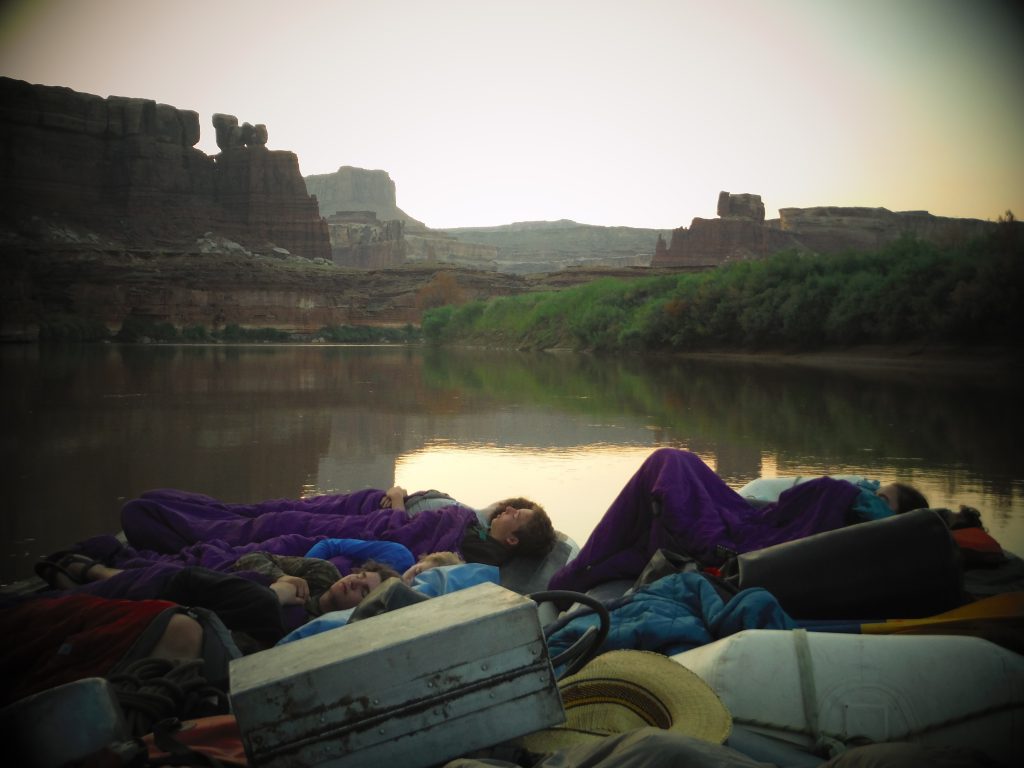
Are You Warm Enough?
The most common reason people have trouble sleeping outdoors is they aren’t retaining enough heat throughout the night. There are many contributing factors behind this, including having the appropriate gear and clothing and managing basic needs like eating enough for dinner. If you’re the kind of person who always feels chilly while camping, try these first four hacks.
Hack #1: The Magic Water Bottle
This is my go-to method for heating up at night. A “magic water bottle” is a water bottle (the Nalgene brand is great) filled with boiling water and placed inside your sleeping bag for you to cuddle with throughout the night. Boil extra water after dinner, carefully fill your bottle (without burning yourself!) and voila: an instant space heater. Extra points if you add a teabag so you can have luke-warm tea to drink for breakfast. Be sure that your bottle is BPA free and that it doesn’t leak before you throw it into your sleeping bag… because no one wants a soggy sleeping bag.
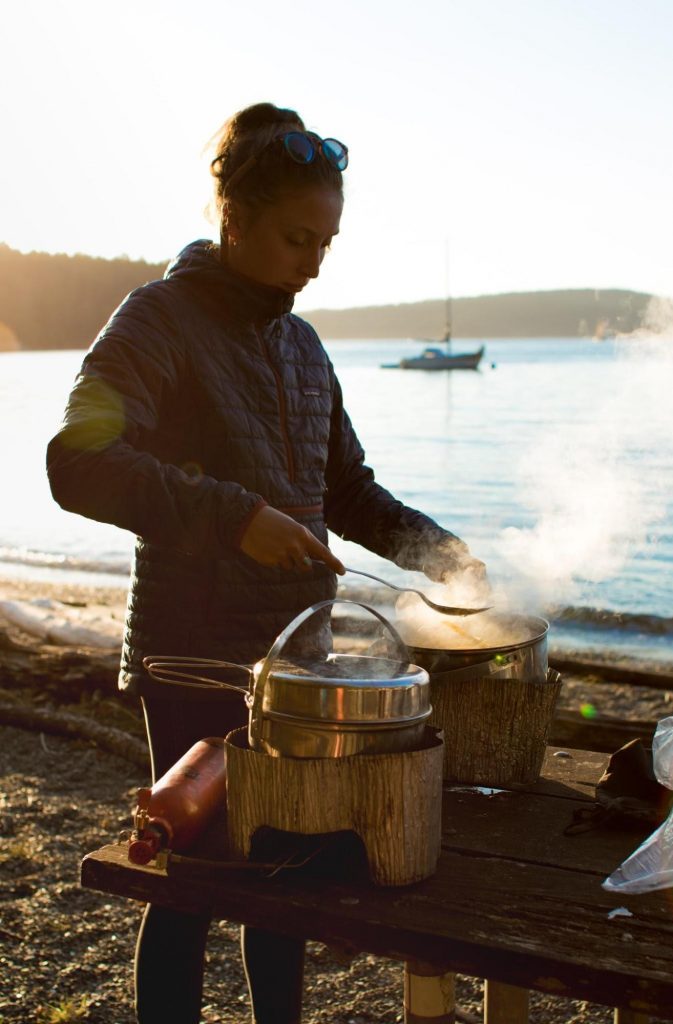
An Outward Bound student cooks by the sea after a rewarding day of kayaking.
Hack #2: Do 20 Sit-Ups
It may feel like the last thing you want to do after a long day of exertion, but I guarantee it works. It’s simple: do 20 sit-ups right when you’re ready to go to sleep. This will jumpstart your metabolism and increase blood flow so that you can drift away in a fluffy, pre-heated cocoon. It’s important to do this while inside your sleeping bag so that all the precious heat you create from exercising gets retained and circulated inside.
Hack #3: Eat A Full Dinner
Without the proper nutrients, your body won’t be able to produce heat, let alone properly repair itself after a long day of hard work. Eating hot, nutrient-filled meals, preferably with lots of proteins, carbohydrates and fats, is quite possibly the best thing you can do to set yourself up for success in the backcountry. A good meal at the end of the day not only improves your body’s performance, but it boosts morale. A happy camper is a fed camper!
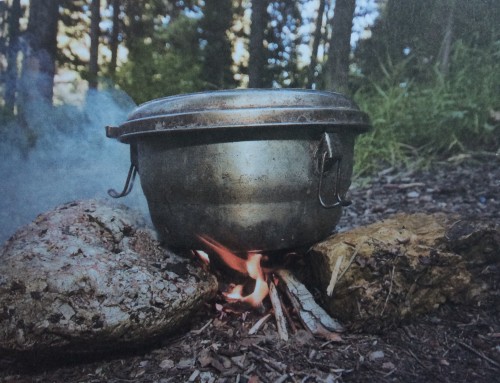
A good meal at the end of the day not only improves your body’s performance, but it boosts morale.
Hack #4: Don’t Hesitate, Urinate!
Stay hydrated and pee often. It’s simple enough, but when you have to pee at 3 am and the last thing you want to do is leave your cozy tent, you’ll be faced with the ultimate challenge of will-power. Your body expels energy to keep the urine in your bladder warm—which is energy you could be using to heat other more important parts of your body. If you’re bold enough to leave your tent and brave the elements for the two minutes it takes to pee, I guarantee you’ll return to your sleeping bag and finally be able to relax into a deep slumber.
Are You Comfortable?
Just because you’re in the backcountry doesn’t mean you need to skimp on luxury. By luxury, I mean being innovative with what you have to make your sleep system perfect for you. My advice? Use what you already have to level up your sleeping experience.
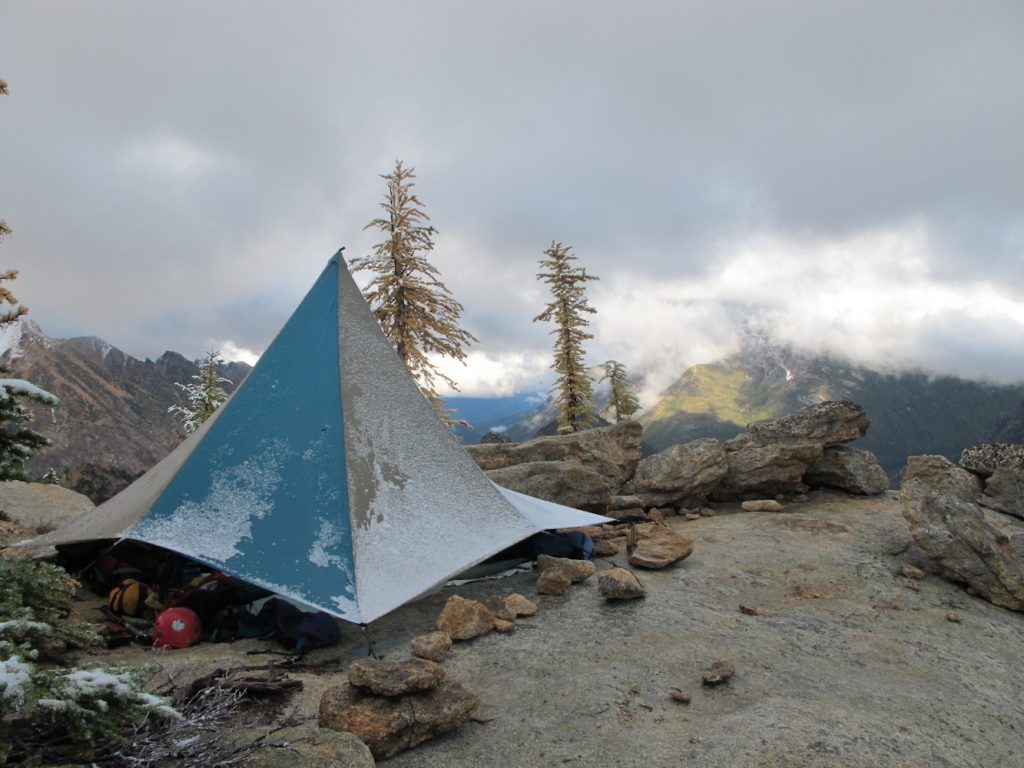
Be innovative with what you have to make your sleep system perfect for you. Photo by Joel Reid.
Hack #5: Build Your Dream Mattress
Are you a back sleeper and prefer to have some padding under your knees? Take an unused piece of gear like rain pants or a day pack, and place them under your sleeping pad to form an extra cushion to contour your body. No pillow? Fill an extra stuff sack with your unused soft clothing—your head and neck will be much happier. Did you set up camp on a mild incline? This is common. Use your extra gear to build a level surface under your sleeping pad. Once you get your creative juices flowing, the possibilities for a comfy night’s sleep are endless!
Hack #6: Protect Your Precious Bedding
Caring for your gear is a high priority in the backcountry. During the day, make sure your sleeping bag and extra warm layers are safely stored in your backpack. Even if there’s a 0% chance of rain, I personally always keep my sleep system wrapped in a plastic liner bag for the off-chance it gets wet or spilled on. Who knows what might happen? Your water bottle could spill, a packet of strawberry jelly could break open, or even your cooking fuel could leak into your sleeping bag… and then we’re in real trouble.
Peace of Mind
I used to lose sleep over my fear of animals coming too close to my tent. I would wake at the smallest noise of a twig breaking 100 feet away, and I’d stay vigilant for several hours a night because I was afraid of what the darkness held. Many find that sleeping in the wilderness is a scary experience because it’s unfamiliar, harsh and shared with other living things. For those who fall into this camp, these last two hacks might come in handy.
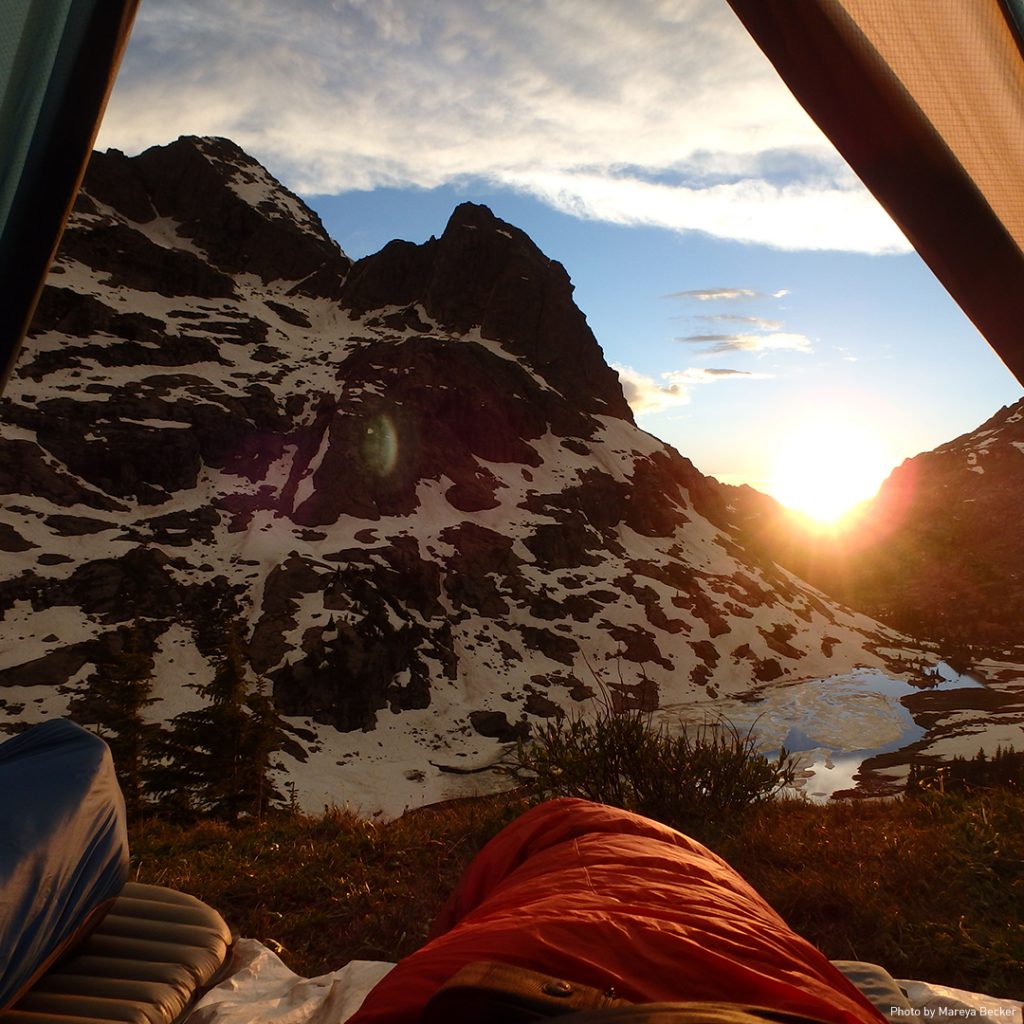
People can find that getting sleep while in the wilderness is a scary experience because it’s unfamiliar.
Hack #7: “Bomb Proof” Your Camp
Animals and critters don’t want to interact with you just as much as you don’t want to interact with them. However, they’ll sometimes invite themselves to your camp if they see an opportunity to eat your food. Before bedtime, I would say it’s mandatory to “bomb proof” your camp for these reasons. “Bomb proofing” camp means to store everything in its proper place so that if a big storm, a hungry deer or a couple of interested mice come through, nothing would be affected (ideally!). This means that you should remember to put everything that smells like food into the containers you have (bear canisters, bear boxes, odorless bags, etc), and store them at least 100 feet from where you sleep.
Hack #8: Use Earplugs
Whether it’s a twig breaking several feet away, or your neighbor snoring loudly next to you, earplugs are a special little luxury that cancels out the ambient noise and signals to your body that everything is okay. Earplugs weigh less than an ounce, they’re easy to pack into your toiletries kit and could be just the thing that gets you through the night. Highly recommend.
Whether you’re having trouble staying warm, struggling with getting comfortable or anxious about unfamiliar settings—all I can say is it takes time to discover what works for you.
Good luck, and don’t forget to enjoy the stars!
About the Author
Eva Johnson has worked at the Colorado Outward Bound School as a Field Intern and Logistics Coordinator. She’s a Colorado native and if she’s not in Leadville working for Outward Bound, she’s probably adventuring in South America, surfing on the rugged Oregon coast or teaching kids to climb rocks.




